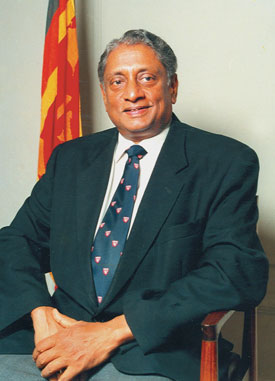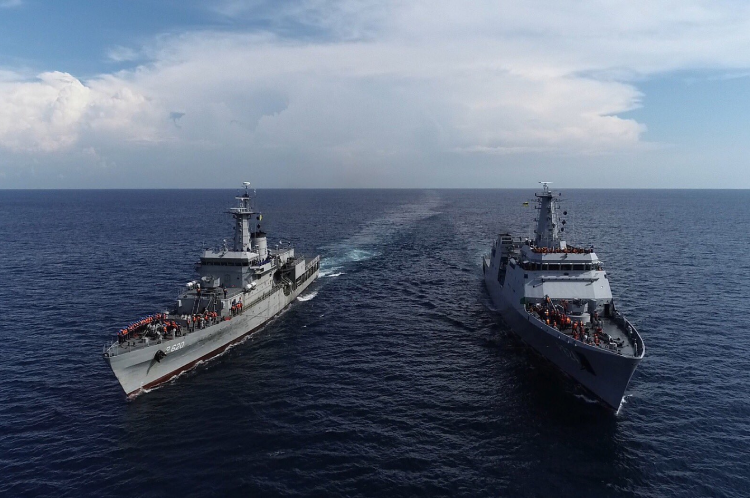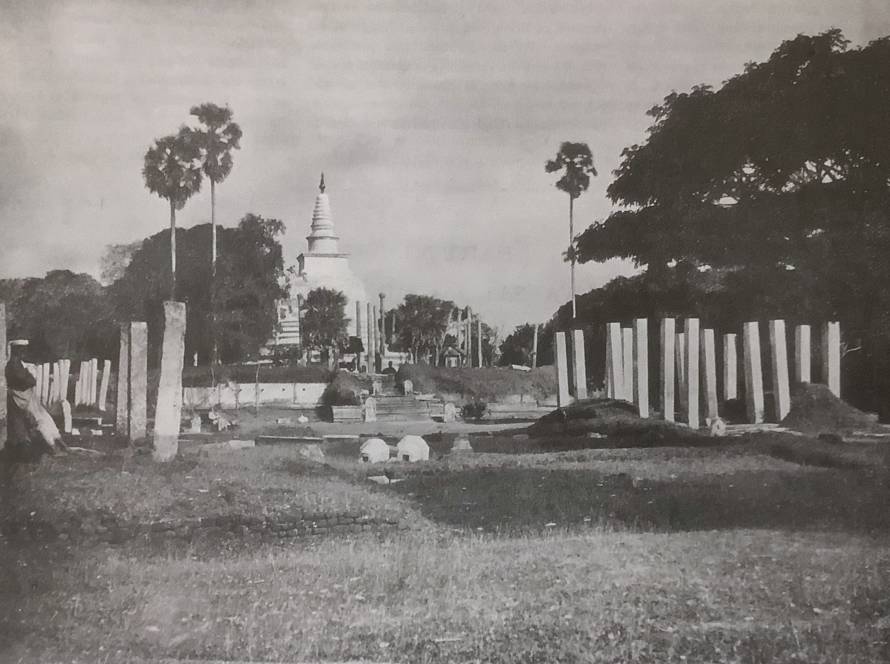
By Seevali
The Government of Sri Lanka is planning to bring in professionals into the Foreign Service from various fields, mainly from some selected corporate entities. The last project carried out during the tenure of late Lakshman Kadirgamar, Sri Lanka’s Foreign Minister in the 90s, under President Chandrika Bandaranaike Kumaratunga aimed to achieve that.
The plan was to minimise political appointments being made in several of Sri Lanka’s diplomatic missions below the ranks of Ambassador or High commissioner, be it as reciprocity or gratification. Various personalities who are known to the polity have secured plum appointments since the advent of the Foreign Service. This remains unchanged under the present Government as well.
Sri Lanka’s foreign service experienced a huge lacuna as a result of non-recruitment for several years. This vacuum was carried forward until posts became vacant in multiple missions due to a lack of expertise in public diplomacy and economic diplomacy.
The shortage has been resolved to some extent with many batches of new foreign service recruits. Specialised functions such as public diplomacy still could be strengthened perhaps with external professional support.
Under Kadirgamar, one main objective was to counter adverse publicity and enhance Sri Lanka’s positive image. The Pro LTTE factions were working round the clock to spread their message which resulted in many a ramification for Sri Lanka such as a lack of investor confidence and tourists opting not to book holidays.
Lengthy assessments within the Ministry walls noted the need for a desirable marketing and communication plan that had to be infused from outside. Kadirgamar however was in no rush to call for external support due to several factors.
Firstly, he was careful to avoid roping in politically influenced persons who may not produce anticipated results. He reckoned that this project should not have any political involvement and left no stone unturned.
Secondly, he wanted to ensure that the professionals selected for the various tasks were qualified to carry them out. He therefore worked with the Publicity Division of the Ministry to develop a recruitment plan. The plan formulated a careful selection procedure followed by several training sessions for candidates before jetting off to their postings.
Thirdly, the Minister was wary not to allow the foreign office to handle the recruitment process beyond establishing the criteria and draft the employment terms of reference. He endowed the entire selection process on the Public Service Commission which advertised the vacancies in the newspapers. The Counselors’ position desired a Bachelor’s or Master’s degree with 10 years and 7 years’ experience respectively.
The selection process included a written test and two interviews. Over 250 candidates took the written test. Only 50 were shortlisted. The interviews were stringent and selected only five professionals who could take over as Counsellors of Information and Communication whose job descriptions varied from country to country.
Those selected were Aruna Kulatunga, an International Journalist to serve in London, Mohan Samarasinghe who served at Reuters and posted to Otawa, Rajika Jayathikake, an International Journalist posted to Bangkok, Vipula Wanigasekera, Director Marketing of the Sri Lanka Tourist Board assigned to Malaysia and Sugeeshwara Senadheera, a journalist to New Delhi. The selections were not questioned by the public as they were carried out independently by the Public Service Commission.
The lesson from this initiative are multi-faceted. The recruitment process spanned over 8 months, but attracted personnel with a good balance of professional experience and academic qualifications. Senadheera later served in Paris and is currently the media advisor at the Presidential Secretariat. Wanigasekera was cross posted from Malaysia to Oslo to open the first Sri Lankan Mission in Norway.
The objectives for the diplomats were extremely clear. Develop public diplomacy plans to counter adverse publicity and uphold a positive image of Sri Lanka to attract trade, investments and tourism. The activities planned for this purpose varied in each country and had to be prepared in consultation with the Publicity Division of the ministry. A training on ‘how to handle hostile media’ among many others were also rolled out.
The application of the same model resulted in the foreign service securing expertise of professionals such as Panduka Senanayake in South Africa and Ranga Kalansooriya in Malaysia who later served as the Director General of Department of Information.
Some diplomats faced issues. However, the transparency in appointments through the public service commission safeguarded their positions with minimal interference. The work carried out by these diplomats were monitored regularly via progress reports. The late Minister was available for any spontaneous decision-making support. .
Presumably, the Ministry will follow a similar process for the intended program of infusing professionals into the Foreign Service. There are incumbent political appointees in the service who consider themselves above standards expected of them thanks to the political shielding from who they serve. If the present proposal undergoes such pressures, it will only lead to waste of funds and disappoint foreign service officers who have taken a back seat just allowing their tenure to end and the next generation to take over.
The sole objective of these processes is to turn our foreign missions into one-stop-shop with housing capabilities and skills to position Sri Lanka right in the global capitals. Foreign relations is all about people-to-people contact in every sphere not confined to day-to-day bilateral/multilateral and protocol engagements. Minister Kadirgamar had a clear vision in this regard. That is why we call him a visionary minister of foreign affairs.
The writer is an ex-diplomat with wide range of experience in multilateral fields.
Disclaimer – Factum is a Sri Lanka based think-tank providing international relations analysis and public diplomacy consultancies in Sri Lanka and Asia. Visit – www.Factum.LK


